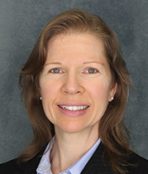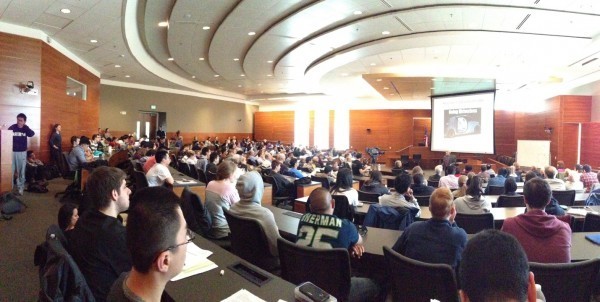-
April 15, 2016
Seminar: Dr. Daniel Sperling Speaks to CEE Transportation Students and Faculty
TRANSPORTATION REVOLUTION: RADICAL CHANGES ON HOW WE TRAVEL
“Car-centric monoculture is expensive and resource-intensive,” echoed Dr. Daniel Sperling in the fully-packed and standing-room only auditorium of William Gates Law School building during his seminar on April 14, 2016. He continued on by placing emphasis on transportation revolutions – – energy efficiency by using hybrids; vehicle electrification (Nissan Leaf, Tesla Model S, Chevy Volt, and Toyota Mirai); new propulsion technologies using electricity and Hydrogen. He is placing passenger transportation as the least innovative factor, and that single occupant vehicles dominate the streets, but with the new mobility services (Uber and Lyft) and fast-changing digital technologies for automation of vehicles, the transportation mode will change.
Dr. Sperling has put significant value on how to reduce vehicle use; how to shift away from high carbon fossil fuels; how to create transport systems that are cheaper, better, more sustainable, less expensive, less resource, less carbon, and more accessible. The carbon released since the industrial revolution is 1400 gigatons and 500 more. Travel keeps peaking in rich countries, and there is a need to shift away from high carbon fossil fuels. The Plug-in Electric Vehicle (PEV) sales is increasing around the world, with China hitting the highest in investing, followed by Canada. New mobility services (Uber and Lyft) are proliferating and are capturing 30% of passenger travel; the fast-changing digital technology brought the creation of vehicle automation; and the continued advances in electrification of vehicles. The sharing rides concept is a breakthrough on how we travel, thus a need for new policy framework that eases excessive regulation on taxis and impose appropriate regulations on new services. With all these new mobility mode options (car sharing, conventional transit, and smart para transit), the public does have large benefits since they are aligned with the public interest. There are less vehicles in use but more passengers. Dr. Sperling said that researchers, policy makers, and industry need to understand and motivate consumers and travelers. Vehicle revolution poses leadership challenge, he added, and that policy leaders must embrace clever and effective regulations. “TRB, University, and government leaders need to cross the chasms, and how might transportation community engage in creating sustatinable 21st century transportation.”
“We can not solve our problems with the same thinking (and institutions and research) we used when we created them.” Albert Einstein



